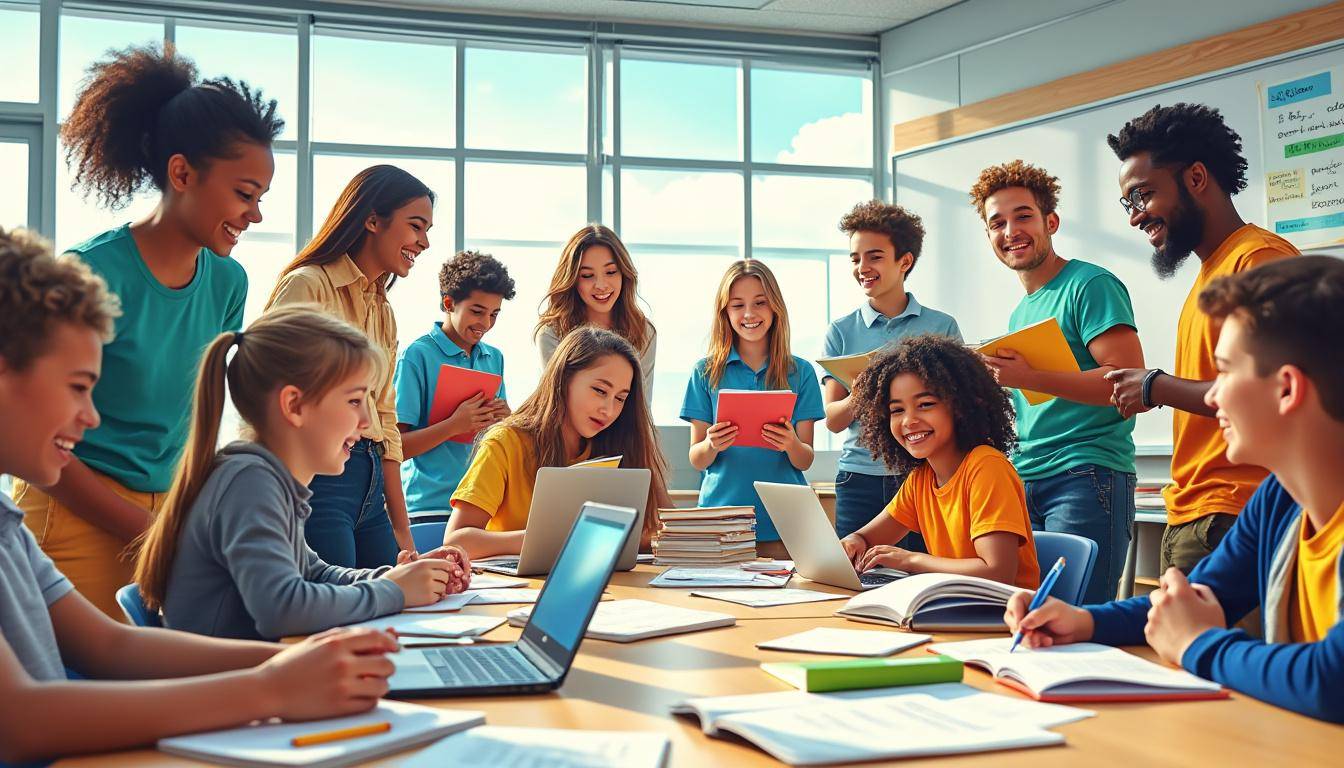Amid ongoing concerns about educational achievement in Illinois, especially regarding literacy, recent legislative efforts mark a meaningful step toward improvement. With less than half of Illinois students reading at grade level, five newly proposed bills targeting literacy, transparency in education, and career pathways could pivot the state’s academic landscape. While these measures promise enhanced parental involvement and professional development for educators, the journey to a robust education system demands continuing commitment and expanded reforms.
Five New Illinois Education Bills Focused on Enhancing Student Success
Illinois lawmakers have introduced five key education bills aiming to support both students and families in achieving academic excellence. Reflecting a comprehensive approach, these legislative initiatives focus on advancing literacy skills, increasing transparency, and broadening career education opportunities.
- Parental Access and Advocacy Enhancements: Two bills bolster parents’ rights to engage effectively in their children’s education by ensuring access to individualized education program advocates and mental health records.
- Strengthening Literacy Instruction: Two bills emphasize the adoption of science-based reading methods and early identification of reading difficulties to boost literacy rates from elementary through high school.
- Expanding Career and Technical Education: One bill expands opportunities in agricultural education, aligning curriculum with Illinois’ economic strengths while encouraging hands-on vocational skills.
These reforms await Governor J.B. Pritzker’s signature to become active laws, symbolizing a hopeful direction for Illinois education.
Expanding Transparency to Empower Parents in Illinois Education
Recognizing parents as crucial advocates, Illinois seeks to increase transparency about student education and care. House Bill 1366 mandates that school districts notify parents about their right to bring specialized advocates to meetings concerning individualized education programs (IEPs). This legislation also affirms parents’ rights to request neutral facilitators to resolve disputes with educators, which is vital for students requiring special education.
Similarly, House Bill 2994 aims to dismantle barriers by granting parents and guardians of minors access to mental health and developmental disability records. For students 18 and over, designated representatives can now access these essential documents.
- Written notifications to parents about advocacy rights
- Access to sensitive student records for better-informed support
- Appointment of neutral third parties to ease educational conflicts
These transparency improvements could serve as a model for parental involvement nationally, complementing platforms like Education First and ClassDojo that emphasize parent-school collaboration.
Addressing Illinois’ Literacy Challenge Through Informed Teacher Training and Student Screening
With only 41% of students in grades three through eight reading at grade level, Illinois faces a significant literacy crisis. The state’s response includes two bills designed to align teacher training with evidence-based literacy instruction rooted in the science of reading.
House Bill 1368 updates professional development criteria to require educators renewing their licenses to undertake literacy training emphasizing phonics and other proven reading techniques. Meanwhile, Senate Bill 1672 compels school districts to report early literacy screening procedures in kindergarten through third grade, enabling timely identification of students at risk for reading difficulties.
- Mandatory literacy-focused professional development for teachers
- Regular reporting on early reading assessments
- Science-of-reading methodologies replacing less effective practices
This legislative focus mirrors successful literacy initiatives used by organizations like Khan Academy and McGraw-Hill Education, underlining the importance of equipping educators with up-to-date tools.
Broadening Career Pathways with Focus on Agricultural Education
In support of Illinois’ agricultural economy, Senate Bill 1605 allows agricultural education and agribusiness courses to fulfill vocational graduation requirements, while creating a grant to support teachers who extend their instruction to include additional agricultural programming. This initiative connects students with hands-on learning experiences that align education with workforce demands.
- Agricultural and agribusiness courses qualify for vocational diplomas
- Grant program incentivizing teachers to offer extended agricultural education
- Strengthening workforce readiness through career-focused learning
Such career education expansions resonate with the goals of Teach for America and Edutopia, which promote practical skills and community engagement in education.
Moving Beyond Current Legislation: The Path Forward for Illinois Education
While these five bills offer encouraging steps, Illinois’ education system still demands comprehensive reforms to meet the state’s challenges fully. Further enhancement is essential in areas such as:
- Expanding science-of-reading based literacy programs across all districts
- Strengthening accountability and transparency mechanisms within schools
- Promoting diverse career-first education pathways and greater access to school choice
- Fostering partnerships with educational organizations like Scholastic and The Learning Company
Lawmakers and the governor are tasked with sustaining momentum to elevate Illinois education, ensuring that every child has the chance to thrive academically and personally. Engaged parental involvement and targeted teacher development remain cornerstones of this effort, in harmony with initiatives featured on platforms such as Edmodo and Pearson.
For further insights on education topics including the impact of socioeconomic factors, discover articles on food insecurity and education as well as migrant workers’ educational challenges. Additionally, explore enriching educational approaches through the integration of theatre arts and the role of digital resources at YouTube-based learning platforms.


